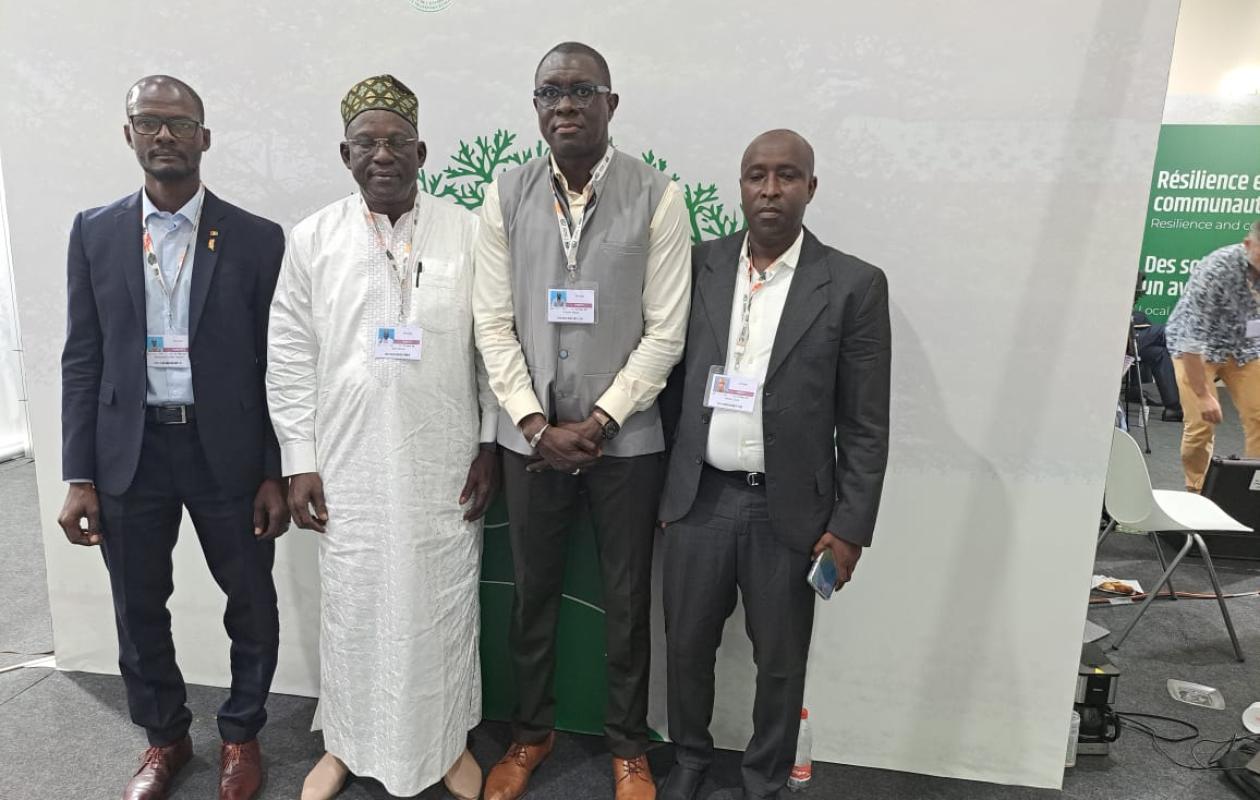
COP-30 au Brésil : l’ONAS trace sa voie de mobilisation des financements verts
"Getting ONAS out of the mud and sewers." This is the striking phrase used by Emmanuel Seck, Executive Director of Enda Energie, to highlight the participation of the National Sanitation Office of Senegal (ONAS) in the Conference of the Parties on climate change being held in Belém, Brazil.
The ONAS delegation, which is on a mission to prospect for potential partners who can support it in mobilizing green funds, already has a basis for argument with the estimation of the potential for avoiding greenhouse gas emissions.
“We worked with partners Enda Energie and the Global Green Growth Institute (GGGI). This work allowed us to inventory greenhouse gas emissions from liquid waste. We know we have significant potential. And, following this inventory, we will need to implement measures to reduce emissions and to ensure the resilience of our infrastructure,” explained Abdoulaye Mallo Gueye, Head of the Purification and By-Product Development Department at ONAS.
The institution, which aims to play a key role in mitigating greenhouse gas emissions, estimates its funding needs at approximately 400 billion CFA francs. This estimate covers about seven regions of Senegal that have sanitation infrastructure. "We need the support of institutions like the Ecological Monitoring Center," requested Abdoulaye Mallo Gueye.
Following his presentation, the Director General of ONAS, Séni Diène, shared the main directions he intends to implement. These include laying the groundwork for promoting a circular economy through the reuse of treated wastewater and sewage sludge. "ONAS can help reduce pressure on water resources by promoting the reuse of treated water. But to do this, we need pipelines capable of transporting water to areas where it is needed. For this, we need partners and to mobilize green financing," explained the Director General of ONAS.
Following this presentation, Professor Cheikh Mbow commended the new dynamism observed within ONAS, which is focusing on issues of climate change and resilience related to sanitation. "You are using the current vocabulary of negotiations. ONAS, with its products, has the assets to contribute to the preservation of biodiversity," emphasized Professor Cheikh Mbow, Director of the Ecological Monitoring Center (CSE). He then listed the levers ONAS can use to increase the resilience of vulnerable populations, such as agricultural producers, to the effects of climate change. He cited compost as a potential alternative to soil degradation caused by the misuse of chemical fertilizers and other products.
“We’re talking about soil fertility. Stabilized sludge is the best fertilizer. Let’s try to be more pragmatic by putting together a project worth 7 to 8 million euros. Submitting an initial project can catalyze the mobilization of other green funding,” suggested the Director General of the CSE.
Commentaires (1)
Participer à la Discussion
Règles de la communauté :
💡 Astuce : Utilisez des emojis depuis votre téléphone ou le module emoji ci-dessous. Cliquez sur GIF pour ajouter un GIF animé. Collez un lien X/Twitter ou TikTok pour l'afficher automatiquement.